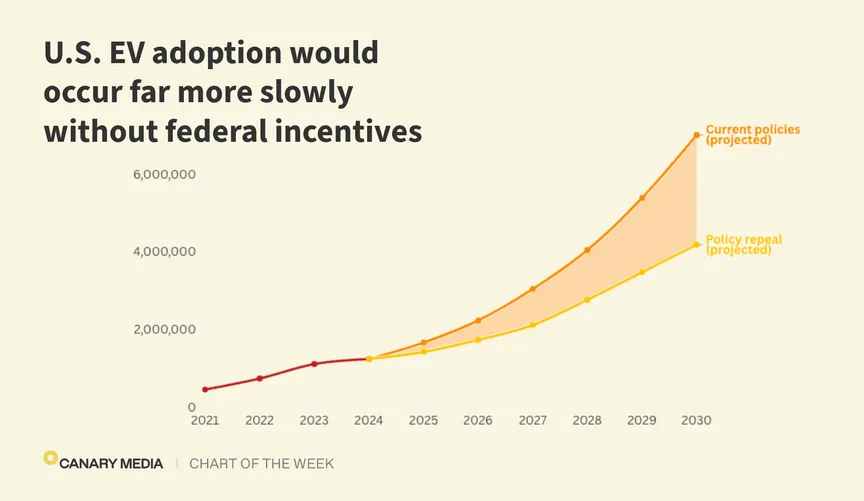Republicans are looking to roll back key electric-vehicle incentives passed under the Biden administration. Doing so would kneecap the EV transition for years to come.
Under current policies, the number of light-duty EVs sold annually is forecast to climb to 7 million by 2030, according to a new analysis from the REPEAT Project at Princeton University. But if those policies — specifically the consumer EV tax credit and tailpipe emissions rules — are repealed, that figure is forecast to be 40% lower in 2030, at around 4.2 million.

Despite Detroit’s pleas, the Trump administration and congressional Republicans are seeking to eliminate the $7,500 EV tax credit as well as vehicle efficiency rules that incentivize automakers to stop making gas-fueled cars.
It would be a blow to a U.S. EV industry that’s already coming off a year of mixed success. On the one hand, consumers bought a record number of EVs in 2024 as models from automakers other than Tesla caught on. On the other hand, sales grew by just 7% compared with the year prior — a sluggish rate compared to the nearly 50% leap that occurred in 2023 — and automakers began walking back from their EV commitments even prior to President Donald Trump’s election.
Should Republicans succeed in repealing the tax credits and efficiency rules, it would further slow EV adoption — and in the process destroy jobs at EV and battery factories. The REPEAT Project analysis found that eliminating these policies would threaten plans to expand U.S. EV factories and potentially lead to the cancellation or closure of half of existing EV factory capacity. The moves would have a similar effect on the burgeoning battery belt.
More than 80% of announced investments in U.S. EV manufacturing are located in congressional districts represented by Republicans, according to a January report from the Environmental Defense Fund and WSP USA.
Beyond the economic ramifications of the potential repeal, the climate consequences are dire. Gas-powered vehicles are one of the largest sources of planet-warming carbon emissions in the U.S.; they also cause a significant amount of smog-forming pollution that can contribute to respiratory diseases like asthma. Slowing down the transition to electric vehicles would only serve to exacerbate these problems.